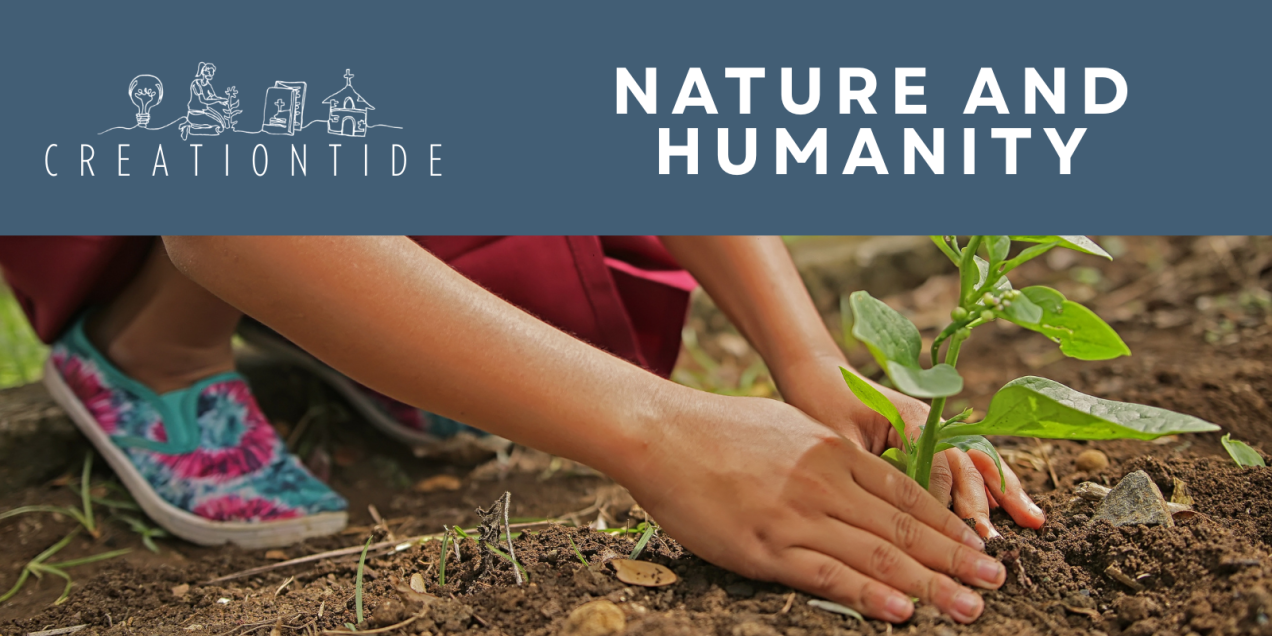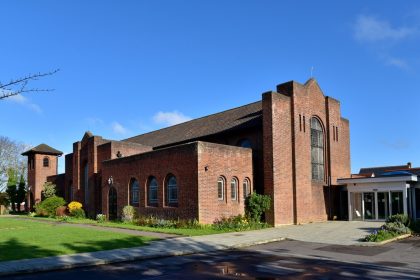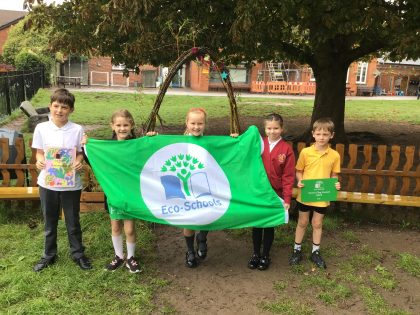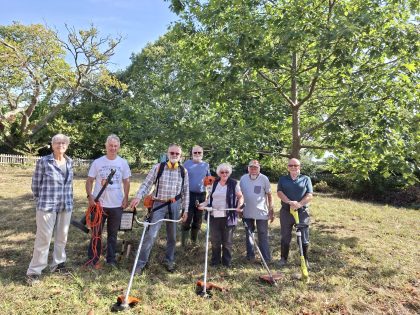This Creationtide, we’re looking at different aspects of creation, reflecting on questions each week and thinking about what we can do to care for God’s creation. This week, we’re exploring the theme of ‘Nature and Humanity’:
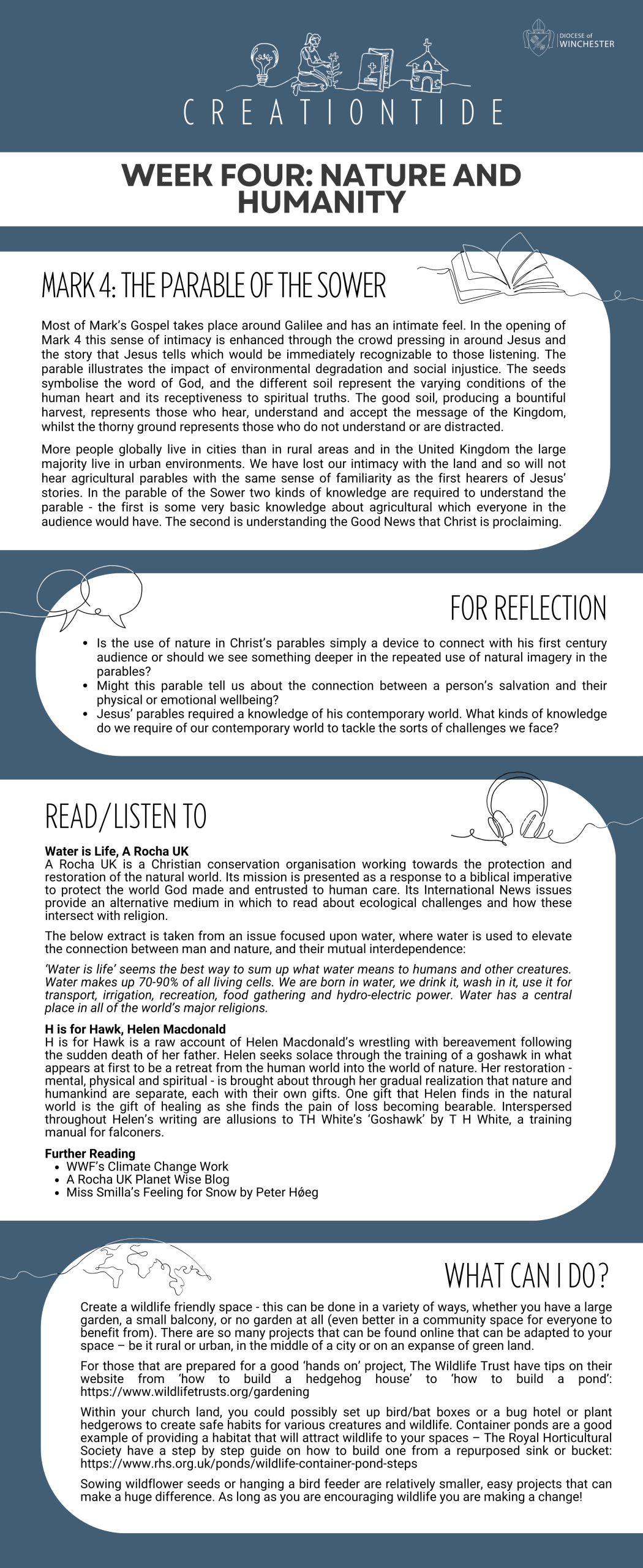
Links:
- WWF’s Climate Change Work
- A Rocha, Planet Wise Blog
- The Wildlife Trust – Gardening Projects
- The Royal Horticultural Society – Wildlife Container Pond
Full A Rocha UK Extract:
‘Water is life’ seems the best way to sum up what water means to humans and other creatures. Water makes up 70-90% of all living cells. We are born in water, we drink it, wash in it, use it for transport, irrigation, recreation, food gathering and hydro-electric power. Water has a central place in all of the world’s major religions (in the Bible there are over 500 references to water – more than to worship or prayer!). Maori, the indigenous people of Aotearoa / New Zealand, introduce themselves by naming the river with which they identify. Freshwater ecosystems cover only 1% of the earth’s surface but are home to 12% of all animal species. Over the last century, human demand for fresh water has grown at double the rate of population growth. It’s predicted that two-thirds of the world’s population will experience water stress by 2025. It’s not surprising, then, that freshwater ecosystems are the most endangered on the planet. In the IUCN Red List, 34% of freshwater species are threatened – more than any other group. But attitudes to aquatic ecosystems are changing. Thirty years ago, town planners typically engineered urban streams as drains. These days, increasingly, urban streams are being restored as habitats and public assets. In New Zealand, land owners and ‘stream care’ groups are planting hundreds of kilometres of river banks with native plants. In the Bible, water is a powerful symbol for the life that God’s spirit brings. Water is also portrayed as an agent – God cares for all creatures by providing them with water (eg Psalm 104:10-16). Thus, God’s coming kingdom is a place of abundant clean water – the desert blooms (Isaiah 35) and a life-giving river flows through God’s city (Revelation 22).
A Rocha teams are studying and protecting a fascinating variety of wetlands: a Portuguese estuary, a French floodplain, a Ugandan urban swamp, Ghana’s only natural lake, seasonal pools in Lebanon and Canadian salmon rivers, to name just a few. In this issue you can read about some of these, as well as A Rocha’s new marine research programme in Kenya. Efforts to restore and protect aquatic ecosystems might seem small compared to the scale of the threats, but they are signs of the renewal that God will one day complete. They are significant not just for the habitat that each one restores, but also for the ways they engage people in understanding and caring for these precious and increasingly threatened ecosystems.
The healing power of a Ugandan swamp: A Rocha Uganda – A Healthy Wetland & Health Lives.mov

